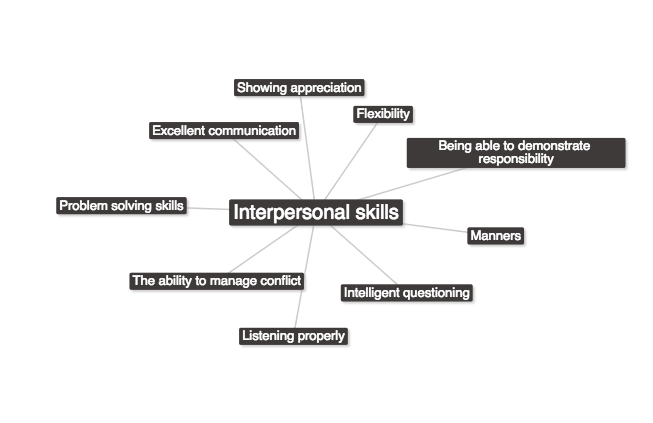In today’s world, there’s fierce competition for jobs everywhere. With more and more people earning valuable qualifications, such as university degrees, employers are looking for that extra flair in potential employees. This is where soft skills come in.
No matter where you go, soft skills such as communication, decision making, flexibility and time management, are becoming as equally desirable as technical skills because they show competence within the workplace.

A great set of transferable, soft skills to possess are interpersonal skills. Emotional intelligence – defined by experts to be “Somebody’s ability to monitor their own emotions, other people’s emotions and using this information to guide their interactions.” – plays a huge role when it comes to building interpersonal relationships with others.
If you are self-aware, can read the feelings of others and are able to manage your emotions, forging relationships more effectively will follow and ultimately lead to more success. People with high EI are also more valued in the eyes of employers. Many employers are currently deciding to send their employees to emotional intelligence courses due to the importance it can play in a workplace.
Most interpersonal skills tend to have been fine-tuned over a long period of time and they naturally come easier to some of us. The good news is that these skills are teachable, although they are often harder to teach than technical skills.
Here are some key interpersonal skills that you should aim to develop:
1. Decision Making
Having the ability to confidently make unbiased decisions is a skill that employers value. A solid decision comes from gathering facts, seeking advice, weighing up the pros and cons and by being able to consider the bigger picture.
2. Self Awareness
Having a clear perception of your own character, feelings, motives and desires. Being self-aware in the workplace allows us to use our strengths, improve our weaknesses and capitalise our success.
3. Self-Management
Being able to keep your emotional and physical reactions in check and to behave properly in situations that could potentially end up harmful. Also relates to being able to work independently if needed.
The diagram below illustrates interpersonal skills that effectively help you work with others.

There are many positive benefits that can be obtained from having strong interpersonal skills, these are skills that are applicable and relevant to our personal relationships, social affairs and professional lives. Their value will always prove itself time and time again.
Contributed by: London Management Centre

